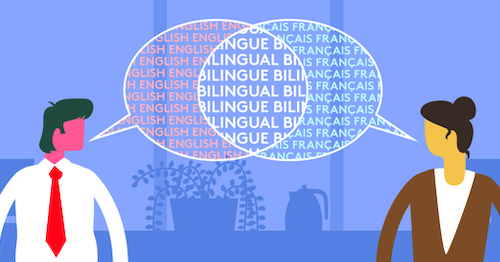Despite the Quebec government’s efforts to make the province primarily monolingual, a study released by Statistics Canada found that the prevalence of English-French bilingualism in the Montreal metropolitan area reached a record level of 56.4 per cent in 2021. This has concerned Quebec sovereigntists that the popularity of English in Montreal is undermining the province’s francophone culture. The historical and colonial significance of Montreal’s French inheritance is evident throughout the city; Old Montreal, for example, harbours structures and designs reminiscent of the 17th century. Given the city’s cosmopolitan culture and its critical positioning between anglophone and francophone Canada, this statistic suggests that English can continue to co-exist without overshadowing French. Quebec’s government must embrace English-French bilingualism in Montreal, not fear it.
Considering that Montreal’s youth, with the exception of a select few, are required to be educated in French until the completion of secondary-school studies, the fear that English fluency might overwhelm that of French is blown out of proportion. Bilingualism offers many benefits, ones that Quebec seems to ignore while focusing on promoting solely the French language. While exposure to English media and culture outside of school may influence a child’s fluency in it, this is not enough to make them wholly reliant on English. According to the Linguistics Society of America, the easiest way for an individual to become fluent in any two languages is through regular interaction in both during their early childhood development. In Montreal, consistent use of French is no issue for the average child due to the Charter of the French Language, which is concerned with making French the primary language of education– not to mention the increasing number of bills in Quebec, like Bill 96, aimed toward French-language supremacy.
The overstated panic surrounding the escalating traction of English also fails to consider that Montreal’s residents have significant incentives to thoroughly learn both French and English. Given the opportunities and ease of living that arise when they achieve fluency in both, French-English bilingualism is a lucrative business. Based on statistics featured in one Montreal Gazette article, degree-holding bilinguals in Montreal earn up to 20 per cent more than their unilingual counterparts. The capacity of bilingualism to improve occupational prospects encourages Francophones, Anglophones, and Allophones to develop a knowledge of English and French. For non-Francophone immigrants who come to Montreal in search of better opportunities, learning French is hardly a suggestion. Montreal’s gravitation toward bilingualism works in both directions.
While globally relevant, English-French bilingualism is particularly useful to students at McGill. The university typically conducts classes in English, allows students to submit assignments in English or French, and still has an estimated 20 per cent Francophone population. Bilingualism ensures integration among and interaction between English and French speakers on campus. This integration is of particular interest to McGill given that the university is home to over 12,000 international students while being located in a francophone province.
Language bridges the gap between the university and the larger Montreal community. Many McGillians end up calling Montreal their home for the entirety of their undergraduate or graduate programs. Wanting to feel more comfortable and natural in a new city, students look to French, as it is difficult to get a sense of Montreal’s neighbourhoods outside of Milton Parc without some degree of familiarity with the language. The incentive of tuition fee exemptions only drives students further to certain French-language courses.
As with most cases of governmental or community initiatives to protect cultural languages, seeking to preserve French in a province surrounded by English requires balance. Resorting to polarizing panic only serves to disregard the practicality of learning a language as advantageous as English and forgets that bilingualism implies proficiency in French as much as it does English.








